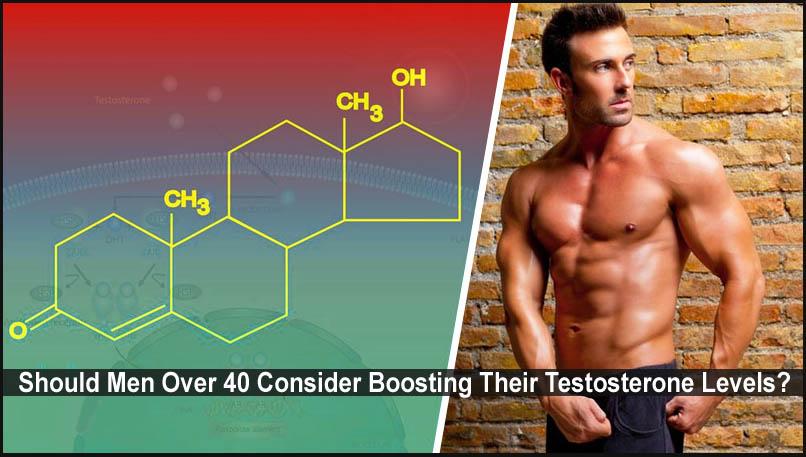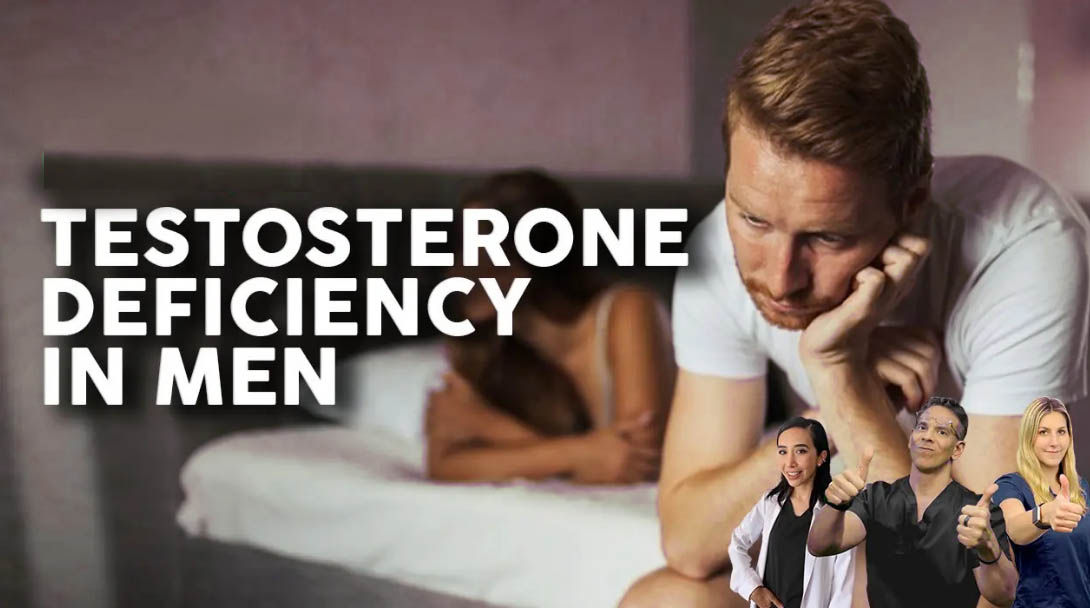The hormone has been peddled as a way to pump up everything from strength and energy to longevity. But just how much of a difference does it really make?
We all know testosterone levels dip as you age, but should guys over 40 be thinking about topping up their T?
For a long time, we accepted certain changes as the price (and privilege) of getting older. Your hair turns grey. Your hearing starts to… wait, what was that you said? And, of course, your testosterone level drops.
But with the boom in testosterone-replacement clinics – by now, who hasn’t been targeted by an ad offering to test your T for under £100? – and both podcasts and influencers preaching the powers of hormone optimisation, should guys over 40 think about winding back their T clocks? And by how much? Here’s what you should know.
Read : Low Testosterone (Low T) Levels – What You Should Know About It?
T CAN HELP YOU LIVE LONGER
A shortage of testosterone is associated with a shorter life. ‘We now have decades of research showing remarkable longevity and health benefits in men with normal testosterone levels compared with men who have low levels,’ says Abraham Morgentaler, urologist and author of Testosterone For Life. That’s true for guys with healthy levels naturally or those who use testosterone replacement therapy to help bring their levels up.
T CAN MAKE YOU FEEL BETTER, TOO
Feeling young often boils down to a few things, says Dr Morgentaler: being strong, staying active and having energy for things you enjoy. ‘Men with low T often lose those things,’ he adds. ‘Not only do men feel better with normal T levels, but for a variety of health issues, they are better.’ That means better sexual function, physical function and mood, according to a study in The New England Journal Of Medicine.
Read : The Importance of Treating Testosterone Deficiency in Men
BUT TESTOSTERONE LEVELS DECLINE WITH AGE
A man’s testosterone level drops about 1% to 2% a year, starting around the age of 40. Doctors generally don’t prescribe T replacement unless a man’s level is low (less than 300ng/ dL) and he has symptoms of testosterone deficiency: reduced libido, erectile dysfunction, fatigue, lack of motivation, insomnia, depression, reduced muscle mass and weight gain.
Read : How to Increase Blood Flow In Penis?
Yet even without these symptoms, a lot of men are clamouring to replace that age-related loss, because why wouldn’t you want your level to be the same at 60 as it was at 30? Bradley Anawalt, a professor of medicine at the University of Washington’s Medical Center, echoes the reasoning of other top testosterone researchers when he says, ‘The simple answer is that we don’t know if it’s beneficial or harmful to give testosterone to a man whose concentration drops with ageing.’ If your T level is in the gigantic normal range (264 to 916ng/dL) and you’re not experiencing any low-T symptoms, it’s hard to argue that you need more of it.
Read : How to Improve Sexual Performance?
‘There’s what I call a “threshold effect”. Once you’re above it, you’re just normal; it’s hard to be more normal than normal,’ says Dr Morgentaler. ‘For the most part, someone who has normal testosterone levels will not notice anything if he takes some testosterone and goes into the upper range.’ Or, as Dr Anawalt puts it,
‘The difference between a level of 450 or 445 is clinically nonsense. From day to day, you can have a variation of about 10% to 20%, and within the day, you can have a variation of about 5% to 35%.’ So, wanting to correct for that 1% to 2% drop each year is understandable, but top researchers in the field aren’t willing to encourage you to go for it quite yet.
THERE ARE OTHER WAYS TO FIX AGE-RELATED MUSCLE WASTAGE
It’s true that you lose muscle fibres as you get older. While testosterone increases muscle strength and mass, hormone replacement might not be able to prevent muscle-fibre loss. ‘It just makes the muscle fibres that remain bigger,’ says Dr Anawalt, and it’s not certain that this has age-reversing benefits. But if you have a deficiency, T therapy can restore vitality and may help motivate you to do the workouts that will build muscle strength and mass.
Read : 10 Extraordinary Health Benefits Of Sex
HOW TO KNOW IF YOU’RE NORMAL FOR YOUR AGE
Beware of anyone who says that you, at 30, 40,
50 or even 60, have the testosterone level of a 70-year-old. There’s a giant reference range regardless of age, so at 70, ‘normal’ is within a 650-point span. ‘If you take 10,000 20-year-olds, average testosterone might be 550 or 500,’ says Dr Anawalt. ‘The average testosterone in 10,000 70-yearolds might be 380 or 400.
But they’re both in the normal range. It doesn’t mean you have the testosterone of a 70-year-old when you have a testosterone of 400 at age 20.’ You have a normal level for both ages.
There’s a movement by influencers and early adopters to stack up your level against yourself, not other people your age. They advocate a baseline testosterone test early in life (or now, if you didn’t do it in your twenties or thirties), so you can see how your levels compare later on. This may or may not prove to be a good investment.
Read: Daily Foods Which Boosts Sex & Kills Sex
WHEN NOT TO TAKE T
Testosterone therapy isn’t recommended if you hope to start a family.
When you’re on it, your body produces less T and, in turn, fewer or no sperm. Most of the time, production returns when you stop T therapy – but not always like before. Later this year, the results of a blockbuster testosterone trial should answer the lingering questions about T’s cardiovascular safety and benefits.
But doctors make it clear that if your level is low and you’re suffering, you can benefit from increasing it. In other words, the benefit-torisk ratio is favourable when you treat the right people (those with testosterone deficiency). ‘Testosterone gets a bad rap,’ says Dr Morgentaler, as it’s been associated with bodybuilders and cheating athletes. Yet there are years of data on it; it’s been on the market since the 1930s.
Just make sure that low T is what’s causing your symptoms. Weight gain, fatigue, erectile dysfunction and lack of motivation or concentration can all have other causes. And obesity, smoking, excessive alcohol consumption and a lack of sleep may also be responsible for low testosterone. Manage those and you might be able to naturally raise your testosterone level and improve the number and quality of years you have ahead. After all, ‘If you have a garden with a bunch of overgrown weeds, planting more flowers isn’t necessarily going to make for a more beautiful garden,’ Dr Anawalt says. ‘You need to actually get rid of the problem.’




